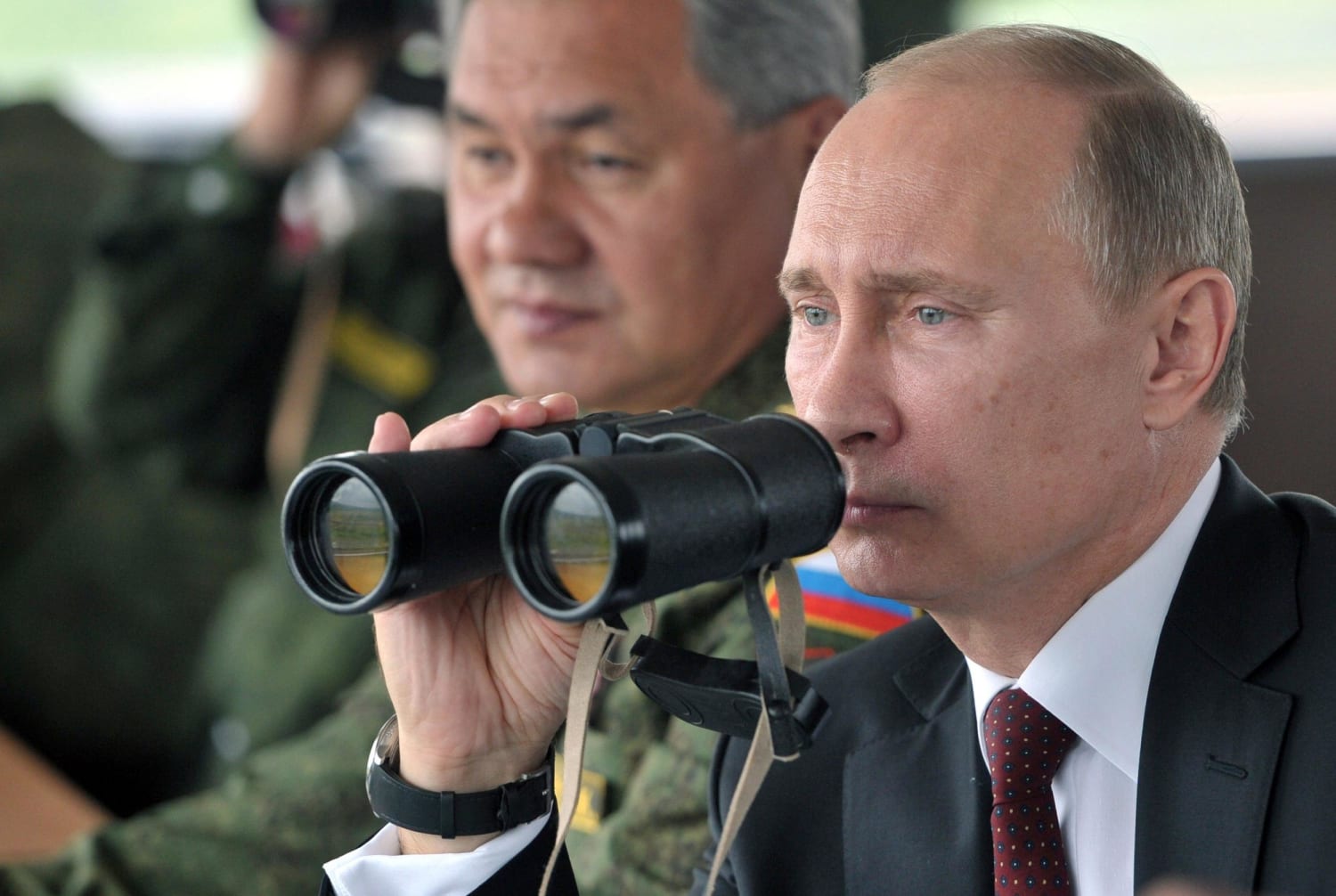'I can see Crimea from my house.'
***
Russia doesn’t respect borders. Neither has the U.S.
By ,
In light of Russia’s military movement into Crimea, it’s a good thing that the United States repudiated the Monroe Doctrine. In 1823, to deter European powers from military or political intervention in the emerging nations of Latin America, President James Monroe announced a policy implying that that region was our sphere of influence, not Europe’s. The United States invoked the Monroe Doctrine, along with the imperatives of the Cold War, to justify some of its own interventions there: in Cuba, Panama, Nicaragua, Chile, Grenada, the Dominican Republic, Venezuela — it’s a long list.
But as the Obama administration has tried to point out to Vladimir Putin, this is the 21st century, and the age when nations had spheres of interest is over.
Harold Meyerson
Writes a weekly political and domestic affairs column and contributes to the PostPartisan blog.
Yet for the United States, the Monroe Doctrine isn’t exactly a musty relic.
In fact, the U.S. government did not pronounce the doctrine dead until last November, when Secretary of State John Kerry, in a speech to the Organization of American States, proclaimed, “The era of the Monroe Doctrine is over.”
From proclamation to renunciation, that era lasted 190 years.
I say all this to put in perspective Russia’s move into Crimea. This is not to suggest that the U.S. government should decline to sanction Russia for sending in forces or notprovide economic assistance to Ukraine and support its bid to join Europe. Rather, I’m suggesting that, according to the norms adhered to by major powers, the United States very much included, Russia’s move into Crimea should come as no great surprise. Putin’s casus belli may be one he manufactured largely by himself, but so was George W. Bush’s case for going to war in Iraq. America’s perma-hawks — the politicians and pundits who beat the drums for intervention in Iraq and now criticize President Obama for insufficient bellicosity about Ukraine — need to explain why the infinitely self-serving doctrine of “preventive war,” which they used to justify our Iraq adventure, should be reserved for us alone. Russia’s military installations in Crimea, Putin has said, were threatened by Ukrainian revolutionaries. When power needs a threat to justify its exercise, power invariably finds one.
Besides, by the standards of the Monroe Doctrine, Russia’s move into Crimea looks normal. In addition to the threat to its naval base, Russia has cited affronts to its almost-countrymen: In its first hours in power, the new Ukrainian parliament passed legislationbanning the use of Russian in governmental institutions, even though it is the native tongue of many eastern Ukrainians. Russia could also claim it was responding to geo-strategic threats: Over the past two decades, even during the tipsy, pro-Western reign of Boris Yeltsin, NATO expanded to Russia’s borders — a move that probably made Russia feel more insecure than made Eastern Europe feel secure. (NATO can’t accurately be described as an effective coalition of the willing: NATO or no, Europe had to be dragged kicking and screaming to provide some of the forces that kept Serbia from gobbling up its neighbors.) Russia could even plausibly argue that Crimea — the longtime home of Russia’s Black Sea Fleet and many Muscovites’ vacation dachas — was appended to Ukraine in 1954only by the whim of Nikita Khrushchev and that it is really more Russian than Ukrainian.
Even if most Crimeans end up supporting Russia’s intervention, Putin’s action violates norms by which nations should conduct themselves — respect for sovereignty, stability and the avoidance of mayhem — even if many nations, the United States included, honor those norms far more in theory than in practice. That’s why Russia should pay a price in diplomatic and economic sanctions.
But Americans should realize that we pay a price, too, when we violate those norms. The admiration in which many held us was gravely damaged by the war in Iraq, just as it has long been damaged in Latin America by U.S. interventions in the affairs of nations we claimed were in our sphere of influence.
As we have paid a price, so now will Putin. His Eurasian Union will either be stillborn or held together at gunpoint — a rickety, glum mini-empire flanked by a more democratic Europe on one side and a more dynamic China on the other. Russia’s limited claim on the world’s regard will last only so long as its natural gas exports continue to flow. As the Monroe Doctrine won the United States few friends, so Putin’s version will win him even fewer.
Read more from Harold Meyerson’s archive


No comments:
Post a Comment